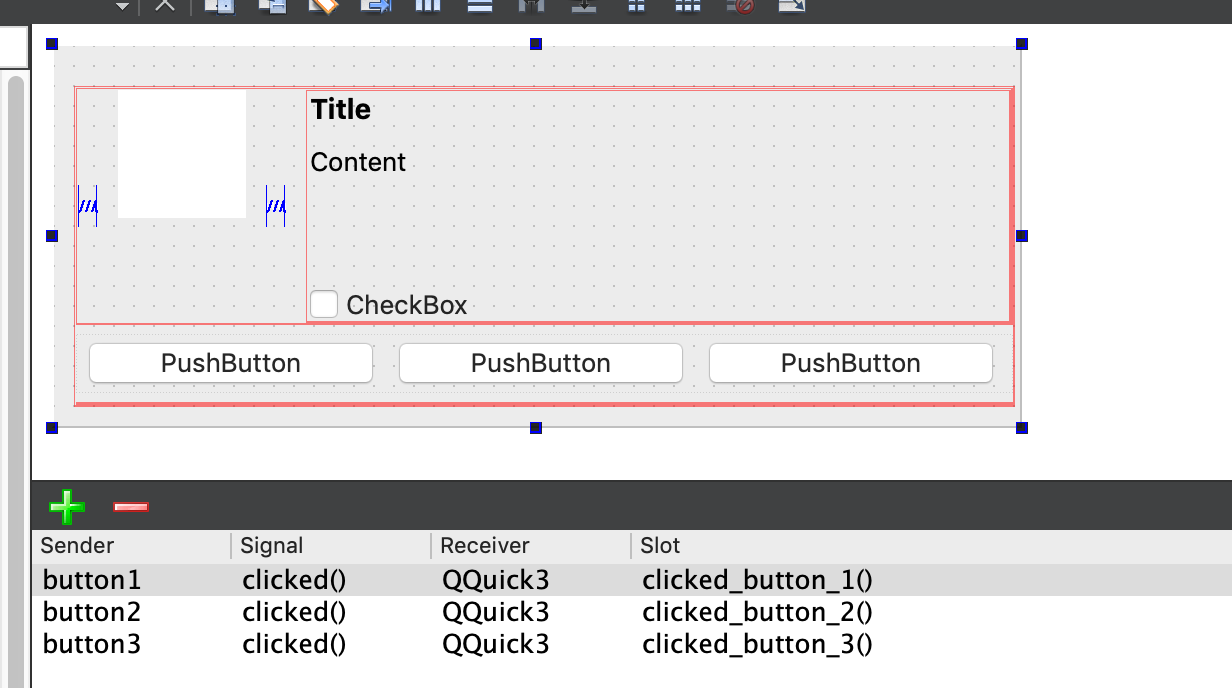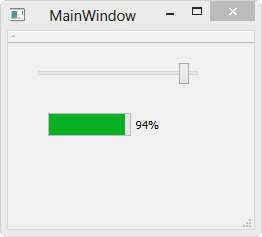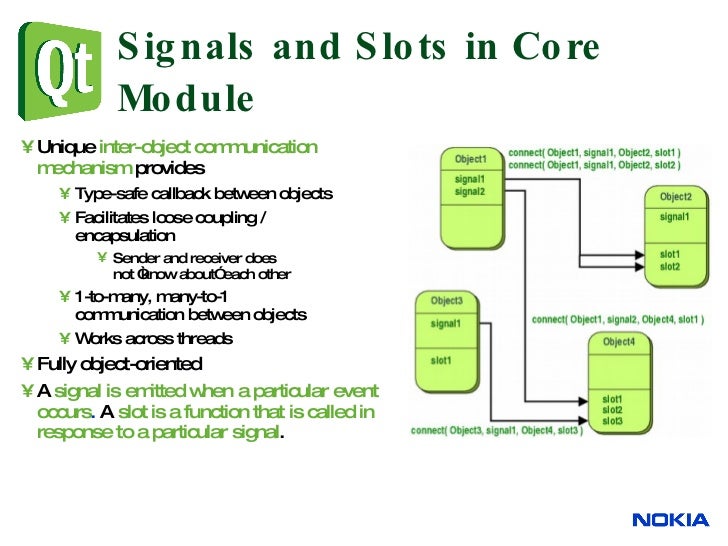Qt Signal Slot Priority
Qt5 alpha has been released. One of the features which I have been working on is a new syntax for signals and slot.This blog entry will present it.
Here is how you would connect a signal to a slot:
- In this tutorial we will learn How to use signal and slots in qt. File-New File or Project Applications-Qt Gui Application-Choose We keep the class as MainWindow as given by default.
- Signals 和 Slots 用于对象间的通信(communication between objects)。这种机制是Qt区别于其他框架的主要特点。这种机制是靠Qt的meta-object system实现的。 介绍. 很多框架使用callback技术(MFC,CVI等)。一个 callback 其实就是一个函数指针,但是Qt认为callback并不直观,而且在.
- Slots and signals must have same parameters. Otherwise, the connection will not occur. Not only for connection, slot function must have same parameters with signal. For example, this sample doesn’t work: QObject::connect(ui.comboBox, SIGNAL (activated(int)), this, SLOT (onComboboxActivated)); But it works.

A developer can choose to connect to a signal by creating a function (a 'slot') and calling the connect function to relate the signal to the slot. Qt's signals and slots mechanism does not require classes to have knowledge of each other, which makes it much easier to develop highly reusable classes. I hope these articles have demystified signals and slots, and that knowing a bit how this works under the hood will help you make better use of them in your applications. Woboq is a software company that specializes in development and consulting around Qt and C.

What really happens behind the scenes is that the SIGNAL and SLOT macros will convert their argument to a string. Then QObject::connect() will compare those strings with the introspection data collected by the moc tool.

What's the problem with this syntax?
While working fine in general, we can identify some issues:
- No compile time check: All the checks are done at run-time by parsing the strings. That means if you do a typo in the name of the signal or the slot, it will compile but the connection will not be made, and you will only notice a warning in the standard output.
- Since it operates on the strings, the type names of the slot must match exactly the ones of the signal. And they also need to be the same in the header and in the connect statement. This means it won't work nicely if you want to use
typedefor namespaces
In the upcoming Qt5, an alternative syntax exist. The former syntax will still work. But you can now also use this new way of connecting your signals to your slots:
Which one is the more beautiful is a matter of taste. One can quickly get used to the new syntax.

So apart from the aesthetic point of view, let us go over some of the things that it brings us:
Compile-time checking
You will get a compiler error if you misspelled the signal or slot name, or if the arguments of your slot do not match those from the signal.
This might save you some time while you are doing some re-factoring and change the name or arguments of signals or slots.
An effort has been made, using static_assert to get nice compile errors if the arguments do not match or of you miss a Q_OBJECT
Arguments automatic type conversion
Not only you can now use typedef or namespaces properly, but you can also connect signalsto slots that take arguments of different types if an implicit conversion is possible
In the following example, we connect a signal that has a QString as a parameter to a slot that takes a QVariant. It works because QVariant has an implicit constructor that takes a QString
Connecting to any function
As you might have seen in the previous example, the slot was just declared as publicand not as slot. Qt will indeed call directly the function pointer of the slot, andwill not need moc introspection anymore. (It still needs it for the signal)

But what we can also do is connecting to any function or functor:
This can become very powerful when you associate that with boost or tr1::bind.
C++11 lambda expressions
Everything documented here works with the plain old C++98. But if you use compiler that supportsC++11, I really recommend you to use some of the language's new features.Lambda expressions are supportedby at least MSVC 2010, GCC 4.5, clang 3.1. For the last two, you need to pass -std=c++0x asa flag.
You can then write code like:
This allows you to write asynchronous code very easily.
Qt Signal Slot Priority Box
Update: Also have a look what other C++11 features Qt5 offers.
Qt Signal Slot Priority Track
It is time to try it out. Check out the alpha and start playing. Don't hesistate to report bugs.